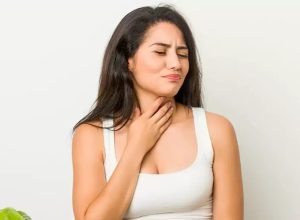Top 10 Foods to Lower Cholesterol Quickly in 2024
High cholesterol, particularly elevated LDL (low-density lipoprotein) levels, can significantly increase the risk of heart disease and other cardiovascular complications. Fortunately, making changes to your diet can have a substantial impact on lowering cholesterol levels. By incorporating certain heart-healthy foods, you can reduce cholesterol levels naturally and improve your overall well-being.
In this guide, we’ll explore ten foods that can help lower cholesterol quickly and provide insights into how diet plays a crucial role in cholesterol management.
How Can I Lower Cholesterol With Diet?
Diet is one of the most effective ways to manage cholesterol. Cholesterol is a waxy substance that circulates in your blood and is necessary for various bodily functions, such as hormone production and cell structure. However, high levels of LDL cholesterol can lead to the buildup of fatty deposits in your arteries, increasing the risk of heart disease. A heart-healthy diet focuses on foods that lower LDL cholesterol, raise HDL (high-density lipoprotein) cholesterol, and support overall cardiovascular health.
Eating a balanced diet rich in soluble fiber, omega-3 fatty acids, and antioxidants can significantly lower cholesterol levels. Soluble fiber binds to cholesterol in the digestive system and prevents it from entering your bloodstream. Omega-3 fatty acids, found in fatty fish, help lower triglycerides and reduce inflammation. By prioritizing foods that help lower cholesterol and avoiding processed foods high in saturated and trans fats, you can improve your cholesterol profile within 30 days.
10 Foods That Lower Cholesterol Quickly
Let’s look at ten specific foods that can help lower your LDL cholesterol levels and reduce the risk of heart disease.
1. Whole Grains

Whole grains like oats, barley, and brown rice are rich in soluble fiber, which has been proven to lower LDL cholesterol levels. Soluble fiber binds to cholesterol in the digestive system, preventing it from being absorbed into the bloodstream. Oats, in particular, are high in a specific type of soluble fiber called beta-glucan, which is particularly effective in lowering cholesterol.
According to research published by the National Institutes of Health, consuming 3 grams of beta-glucan per day (the amount in a bowl of oatmeal) can reduce cholesterol by 5-10% . Adding whole grains to your diet can also improve digestion and support weight management, both of which are important for heart health.
2. Fruits and Berries

Fruits like apples, oranges, and berries are excellent for lowering cholesterol because they are high in fiber, particularly soluble fiber. Berries such as strawberries, raspberries, and blueberries contain polyphenols, which are antioxidants that have been shown to improve cholesterol metabolism and lower LDL levels.
Studies have shown that people who eat a diet rich in berries have better heart health due to the high levels of antioxidants that fight inflammation and oxidative stress . Fruits like apples and citrus fruits contain pectin, a soluble fiber that helps lower LDL cholesterol levels.
3. Garlic

Garlic is not just a flavorful addition to meals; it’s also known for its cholesterol-lowering properties. Allicin, a compound found in garlic, has been shown to lower total and LDL cholesterol levels when consumed regularly. Several studies indicate that garlic can reduce LDL cholesterol by up to 10% when eaten daily over a period of several weeks .
In addition to lowering cholesterol, garlic has other heart-healthy benefits such as reducing blood pressure and acting as a natural anti-inflammatory agent. Including garlic in your meals can give you an added cholesterol-lowering boost.
4. Vegetables

Vegetables, particularly leafy greens like spinach, kale, and broccoli, are rich in fiber and antioxidants, both of which are critical for reducing cholesterol levels. They also contain plant sterols and stanols, which block the absorption of cholesterol in the intestines, helping to lower LDL cholesterol.
Broccoli and spinach, for example, are low in calories but high in nutrients, making them great for weight management and heart health. Eating a variety of vegetables daily helps reduce cholesterol and supports overall well-being .
5. Eggplant

Eggplant is another cholesterol-lowering vegetable that is often overlooked. It is rich in fiber, which helps reduce the absorption of cholesterol in the gut. Studies show that consuming eggplant regularly can help lower LDL cholesterol and support weight management .
This versatile vegetable is also low in calories, making it a heart-healthy option that can be added to a variety of dishes, from stir-fries to roasted side dishes. Including more eggplant in your meals can contribute to a heart-healthy diet.
6. Apples

Apples are high in pectin, a type of soluble fiber that lowers LDL cholesterol by blocking cholesterol absorption in the intestines. Eating just one apple a day has been shown to reduce LDL cholesterol and improve overall heart health . In addition to fiber, apples are also rich in polyphenols, which help fight inflammation and oxidative stress.
Adding apples to your diet can satisfy sweet cravings while promoting better cholesterol management. For best results, eat apples with the skin on, as most of the fiber and nutrients are found there.
7. Avocado

Avocados are packed with monounsaturated fats, which help reduce LDL cholesterol and increase HDL cholesterol. They are also a great source of soluble fiber, further supporting heart health. A study published in the Journal of the American Heart Association found that incorporating avocados into a daily diet significantly lowered LDL cholesterol in overweight and obese individuals .
Incorporating avocado into your meals as a substitute for butter or mayonnaise can make a big difference in your cholesterol levels.
8. Fish

Fatty fish like salmon, mackerel, and sardines are rich in omega-3 fatty acids, which help lower triglycerides and improve heart health. Omega-3s also reduce inflammation and raise HDL cholesterol, which further reduces the risk of heart disease .
Eating fatty fish two to three times per week is recommended by the American Heart Association as part of a heart-healthy diet. Omega-3 supplements can also be taken as an alternative if fresh fish isn’t readily available.
9. Lentils

Lentils are a plant-based protein that’s packed with fiber and essential nutrients. They are an excellent choice for lowering cholesterol, as they help prevent the absorption of cholesterol into the bloodstream. Lentils are also low in calories and contain no saturated fat, making them a heart-healthy addition to your diet.
Research shows that replacing red meat with plant-based proteins like lentils can reduce LDL cholesterol and lower the risk of heart disease . Incorporating lentils into soups, salads, or curries is an easy way to improve cholesterol levels.
10. Green Tea

Green tea contains catechins, antioxidants that help lower LDL cholesterol and reduce the risk of heart disease. Drinking green tea regularly can improve cholesterol metabolism and lower total cholesterol levels . The polyphenols found in green tea also help reduce inflammation and support weight management, further benefiting heart health.
Switching out sugary drinks for green tea is a simple and effective way to help lower cholesterol and improve your overall health.
Conclusion: Cholesterol-Reducing Foods
Lowering cholesterol through diet is not only possible but also a highly effective way to improve your heart health and reduce the risk of cardiovascular disease. Incorporating cholesterol-lowering foods such as whole grains, fruits, vegetables, and fatty fish into your meals can help you achieve and maintain healthy cholesterol levels.
For those looking for a more structured approach to reducing cholesterol, joining Dt. Ila Sharrma’s Cholesterol Reduce Diet Program can provide personalized dietary guidance tailored to your specific needs. In addition to focusing on the right foods, it’s important to make other lifestyle changes, such as increasing physical activity and avoiding saturated fats, to maximize the benefits.












